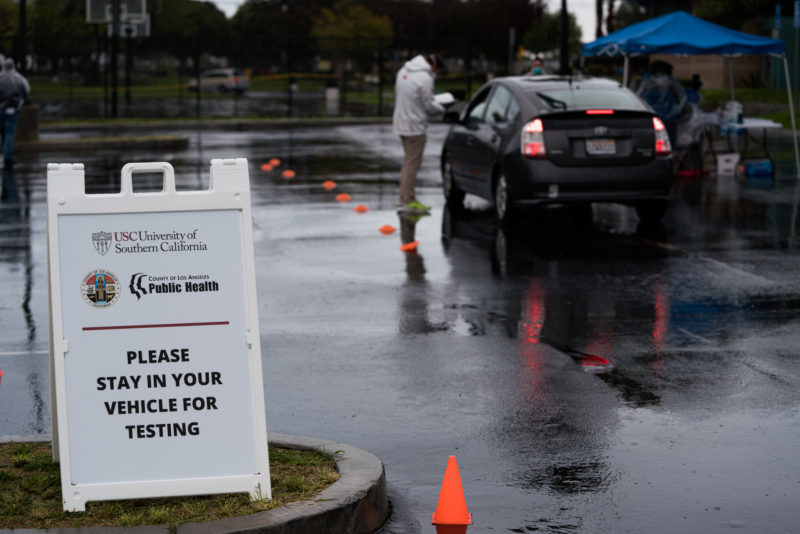The Los Angeles County Department of Public Health, in partnership with USC, released preliminary results from a collaborative scientific study, which found that infections from coronavirus in the county are far more widespread than previously believed, while the fatality rate is much lower.
On April 10 and 11, 863 adults in the county went to one of six drive-through testing sites to be tested using serology testing in the first round of the ongoing study, according to Public Health Director Dr. Barbara Ferrer.
“This is the testing that shows whether a person has ever been positive for COVID-19 and developed antibodies to the virus,” Ferrer said. “This gives us a better understanding of how much of our population has at some point in time been positive, been infected, with the COVID-19 virus, regardless of whether they were ever tested or they even ever had any symptoms.”

Based on the results of the first round of testing, an estimated 4.1% of the county’s adult population has antibodies to the virus, with a margin of error range of about 2.8% to 5.6%.
This translates to approximately 221,000 to 442,000 adults in L.A. County who may have been infected, at some point, with COVID-19, according to the study.
“So, although I report every day that we have thousands and thousands of people that have tested positive, the serology testing lets us know that we have hundreds of thousands of people that have already developed antibodies to the virus, because at some point in time over the last couple of months, they have, in fact, been infected with COVID-19,” Ferrer added.

That being said, the estimate reveals that the total number of people countywide with a past or current infection is 28-55 times higher than the number of reported positive cases, while the fatality rate is much lower than was originally being reported.
“This highlights the importance of using serology testing to continue to monitor this disease, (as it) can provide important information on the true extent of the infection in our communities,” added Dr. Neeraj Sood, professor and vice dean for research and faculty affairs at the USC Price School of Public Policy.
Ferrer said this also reinforces the need for physical distancing, face coverings and other Public Health guidelines, as well as the “Safer at Home” directive, as many people can be infected with COVID-19 while not showing any symptoms.

Findings have also shown that men were more likely than women to have been infected, as the estimated prevalence was 6% among men and 2% among women, Ferrer added.
In addition, these findings suggest that only 4% of the county has been infected, “which means we are very early in the epidemic, and many more people in L.A. County could potentially be infected,” Sood said.
Sood says this also suggests that officials may have to update and recalibrate disease prediction models, using those better models to then rethink public health strategies.

Though data is preliminary and results have yet to be peer reviewed by other scientists, researchers are expected to continue sampling residents across the county in the coming months in order to gauge the virus’ trajectory.
“I do want to issue a reminder that being positive for COVID-19 antibodies does not mean that a person is immune or that a person is not able to be reinfected,” Ferrer added. “More research is really needed to understand what protection people who may have already been infected with COVID-19 have.”
To view all coronavirus-related stories, visit signalscv.com/category/news/coronavirus.









